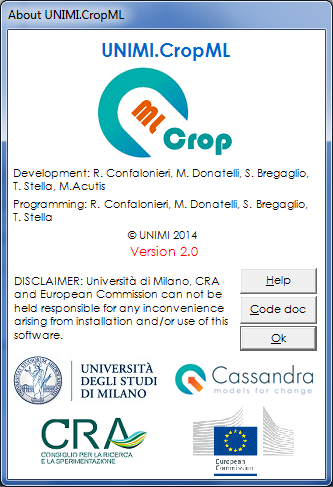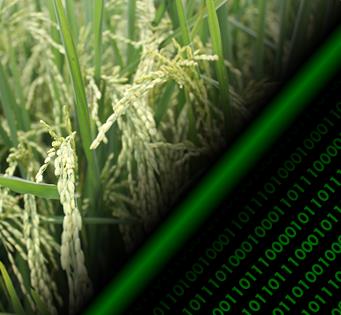Trait-based model development to support breeding programs. A case study for salt tolerance and rice.
 |
2017 - Scientific Reports, 7:4352 |
 |
Paleari, L., Movedi, E., Confalonieri, R. |
Abstract:
Eco-physiological models are increasingly used to analyze G × E × M interactions to support breeding programs via the design of ideotypes for specific contexts. However, available crop models are only partly suitable for this purpose, since they often lack clear relationships between parameters and traits breeders are working on. Taking salt stress tolerance and rice as a case study, we propose a paradigm shift towards the building of ideotyping-specific models explicitly around traits involved in breeding programs. Salt tolerance is a complex trait relying on different physiological processes that can be alternatively selected to improve the overall crop tolerance. We developed a new model explicitly accounting for these traits and we evaluated its performance using data from growth chamber experiments (e.g., R2 ranged from 0.74 to 0.94 for the biomass of different plant organs). Using the model, we were able to show how an increase in the overall tolerance can derive from completely different physiological mechanisms according to soil/water salinity dynamics. The study demonstrated that a trait-based approach can increase the usefulness of mathematical models for supporting breeding programs.
 |
Keywords: - |
 |
DOI: 10.1038/s41598-017-04022-y |
- Comparison of three calibration methods for modeling rice phenology
- A simple pipeline for the assessment of legacy soil datasets: An example and test with soil organic carbon from a highly variable area.
- A high-resolution, integrated system for rice yield forecasting at district level.
- Downscaling rice yield simulation at sub-field scale using remotely sensed LAI data.
- Analysis and modelling of processes involved with salt tolerance and rice.
- Estimating crop nutritional status using smart apps to support nitrogen fertilization. A case study on paddy rice.
- Development of generic crop models for simulation of multi-species plant communities in mown grasslands.
- Quantifying uncertainty due to stochastic weather generators in climate change impact studies
- Predicting rice blast disease: machine learning versus process-based models
- Boundaries and perspectives from a multi-model study on rice grain quality in Northern Italy.








